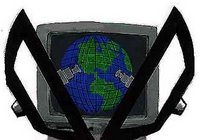
Did you ever dream of spreading the world's knowledge to every corner where connectivity is available? If people learn the basics of computers and web browsing, then they would be able to access to the largest 'library' ever. Actually, Google is trying since some time ago to scan all the books from important libraries around the world. An outstanding project.
And what about on-line education? If you ever took an online course or online studies, you can realize the strong and weak points of it. However, it should be a good option to work in this field to enhance the alphabetization of developing countries, don't you think so?
Apart from the well-known wikipedia, the Google guys are challenging this world with an outstanding inititative ("The Literacy Project") to fight against analphabetism and improve the inter-relation between the different organizations inside this movement. Another ‘bravo!’ for Google!





